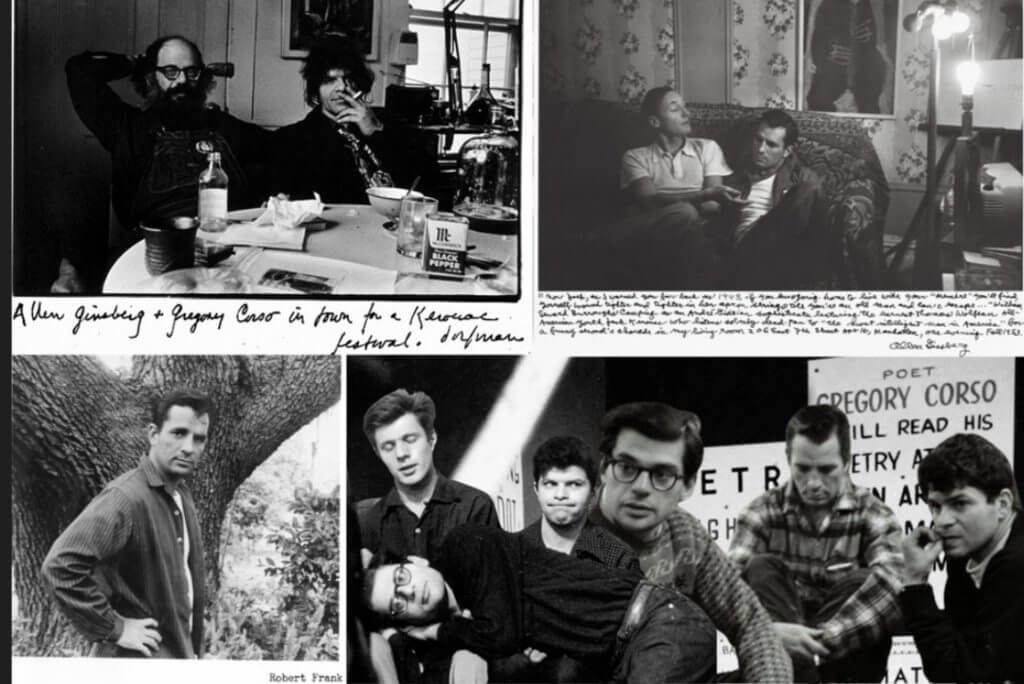News
The Beat goes on
Get the latest Beat-related news straight to your inbox
Oliver Harris Talk at the Dove Room Moorlands House
Oliver Harris, the president of EBSN, will have a talk at the Dove Room Moorlands House on 07 June 2025.…

Ordinary Stupid People: Interview with Cathy Marshall and Simon Johnson
Ordinary Stupid People: Joan Vollmer’s Life Before the Beats Began, researched and written by Cathy Marshall and Simon Johnson, was…

Burroughs-Related Events at October Gallery
October Gallery has some exciting events planned in the following weeks, including film screenings of Naked Lunch, Queer and William…

William S. Burroughs: In conversation Oliver Harris & Kathelin Gray
On 8th March 2025, curator Kathelin Gray and Burroughs scholar and EBSN president Oliver Harris discussed Burroughs as a prolific…

ANNOUNCEMENT: A Complete Works Critical Hybrid Edition of ruth weiss
ANNOUNCEMENT: A Complete Works Critical Hybrid Edition of ruth weiss We are ecstatic to announce that The Austrian Science Fund…

October Gallery London Burroughs Solo Exhibition 6/3-5/4
Our friends at the October Gallery in London are putting on what sounds like a formidable show of Burroughs artworks…

Rethinking Kerouac: Afterlives, Continuities, Reappraisals
This collection of essays by esteemed Beat commentators reassesses one of the 20th century’s most emblematic but often misunderstood American…

Bernhard Lang’s Event
Bernhard Lang’s new work from his GAME series explores the possibility of playing with musical structures.

“Talking Beats” – Audio & Video Live Today 15/3
Video of our new lecture/chat series “Talking Beats” will go live today at 9:30pm GMT.

Beat Exhibition in Chichester, April 2-14
The exhibition is curated by Beat Generation fans and experts: University of Chichester Professors Dick Ellis and Hugo Frey, and…

Book Launch: The Beats and the Academy: A Renegotiation
Launch of The Beats and the Academy: A Renegotiation, by Erik Mortenson and Tony trigilio. Speakers include Rocko Foltz, Nancy Grace,…

CUT-UPS@2023 Call For Papers
The CFP for CUT-UPS@2023 is now live. As a “Special Conference”, it has a particular focus, rather than the usual scope of…

EBSN2022 Murcia – Starting in Just a Few Hours!
Really excited that our first live in-person conference since 2019 is about to start! If you are coming and have…

Interview with Clive Matson
Interlitq editor David Garyan recently conducted a detailed and fascinating interview with esteemed poet and EBSN member Clive Matson –…

Interview with Thomas Antonic on His Book “Amongst Nazis: William
Excellent new interview with Thomas Antonic on his book Amongst Nazis by David Holzer, up on the site now.

The Revitalized Beat Studies Association
The new secretary of the BSA (also EBSN member) Kurt Hemmer asked us to post the following announcement – happy…

Kerouac Live! Adds US Film Premiere
This month’s UK show celebrating the Beat writer’s centenary is now delighted to include American Joyride.

Kerouac Centenary Film – Interview with Filmmakers
Tom Knoff and Kurt Hemmer in conversation with Simon Warner about their new short film.

First EBSN2021 Video/Podcast Now Live
The latest episode of “Playback – The EBSN Podcast”, featuring audio from the EBSN2021 conference, is available now via the…

Gregory Corso Exhibition in the UK
R J (Dick) Ellis is curating, with Hugo Frey, a small exhibition of the work of Gregory Corso, foregrounding how…

Kerouac and Beat Generation Exhibition in Japan
The exhibition opens at BB Plaza Museum of Art in Kobe on July 3, 2021 and runs through August 8,…

ruth weiss
We are very saddened to hear about the passing of ruth weiss, the Berlin-born Austrian-American performance poet who pioneered jazz…























